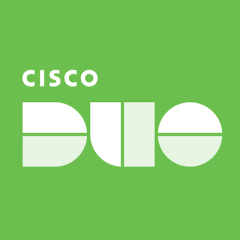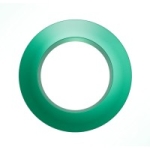What is our primary use case?
We have been using Duo Security for authentication in our in-house sales operations technologies. Therefore, as a Cisco partner, we regularly recommend Cisco Duo Security to our customers to help secure their VPN environments or connectivity to business-critical systems.
How has it helped my organization?
For our customers, Duo Security is a significant advantage because it provides them with a straightforward method to implement MFA across their entire environment. Moreover, once we delve into the more advanced features of Duo Security, it enables us as a partner to engage in ongoing discussions regarding security strategies with our customers. Initially, we may only introduce them to MFA during the onboarding process. However, as their security strategy evolves, we can leverage Duo to perform additional tasks such as risk-based assessments and deployments, thereby assisting in the development of their security measures.
Duo Security helps secure our infrastructure. It serves as our gateway layer of protection, allowing us to understand who is logging in and why. We conduct risk-based assessments on each user to determine whether their actions are appropriate or not. Duo Security is not a comprehensive security solution, but it is undoubtedly a crucial component, a critical layer of security. This aspect resonates with our customers consistently.
Their ability to reduce the risk of a breach is of utmost importance. It serves as the primary line of defense. Currently, credential gathering and leaks are widespread in the market. By implementing an MFA solution like Duo Security, we can effectively prevent these issues. When we put a stop to credential harvesting, it becomes much harder for attackers to infiltrate and navigate our network. Therefore, Duo Security acts as an excellent first line of defense.
User authentication and device verification are the methods through which we envision our customers navigating in order to prevent identity-based attacks. Initially, when we employ Duo Security, it is a straightforward implementation of multi-factor authentication. As we progress, we enhance security measures by incorporating device risk assessment and potentially even regional assessment. This includes considerations such as whether the login is being attempted from a specific IP address. These gradual enhancements contribute to the establishment of an additional layer of protection. Thus, it is not necessary to implement a completely disruptive strategy right from the start. Instead, it is possible to gradually adopt and integrate this approach, following a crawl, walk, or run methodology.
The Duo Security self-service portal helps free up our customers' IT staff time, allowing them to focus on other projects. As a Cisco partner, we have received feedback from our customers that the portal is highly interactive, enabling them to easily navigate and resolve issues. After setting up their Duo environment, we rarely receive callbacks for assistance, as the portal is intuitive and empowers users to handle everything they need on their own.
The appealing aspect of Duo Security is its ability to establish trust for every access request, regardless of its origin. It is a cloud-based solution with excellent API integrations. It doesn't matter where or how a user logs in; Duo will be there to protect the user, whether it's through MFA, risk assessment, or similar methods.
It is extremely beneficial to our customers that Duo Security considers all resources as external. Our customers frequently inquire about a zero-trust model, and this is a key component of it. Unfortunately, I would love to say that there is a simple solution for zero trust where we can just deploy this solution and be done with it. But that's not the case. It requires a layered approach, and that's what we convey to our customers. Duo Security is definitely a part of that.
Duo Security has helped improve our customers' cybersecurity resilience. Internally, it protects our users from accessing sales operations-based environments. Additionally, our customers use it regularly to protect business-critical applications.
What is most valuable?
The ease of deploying Cisco Duo Security and onboarding has greatly benefited our customers. When they have the need or requirement to implement an MFA solution, being able to swiftly set up Cisco Duo Security is perhaps the fastest and simplest feature available.
What needs improvement?
There is always room for improvement. Duo Security is a great product in its current state. However, Cisco can further enhance the integrations, as they possess exceptional integrations with various providers' products and feature sets. They should continue to improve and expand these integrations to include more products. The more integrations they offer, the more advantageous it becomes for us as a Cisco partner to promote and sell their product.
Buyer's Guide
Cisco Duo
February 2026
Learn what your peers think about Cisco Duo. Get advice and tips from experienced pros sharing their opinions. Updated: February 2026.
881,757 professionals have used our research since 2012.
For how long have I used the solution?
I have been using Duo Security for one and a half years.
What do I think about the stability of the solution?
The stability has been excellent. I haven't heard of any issues, either internally or from our customers, regarding any problems with the Cisco Duo platform, the authentication VM, or anything of that nature.
What do I think about the scalability of the solution?
Scalability is excellent. Being cloud-driven, our customers are not concerned. They can simply purchase licenses as they need them, and scale up or down as required. Typically, scaling up and scaling out is the norm. The flexible licensing model and cloud-based delivery enable this process.
How are customer service and support?
Cisco support has consistently been exceptional, and Duo is no different. Although we seldom encounter issues, when we do, they usually relate to product integration or similar matters. However, these problems are never troublesome. The support documentation provided by Duo is superb, possibly even top-notch opinion. Therefore, even if we do experience an issue, more often than not, we can locate a solution within the existing documentation.
How would you rate customer service and support?
Which solution did I use previously and why did I switch?
We have always used Duo Security internally. We have observed some of our customers replacing Microsoft Azure MFA with Duo Security due to its superior capabilities. Duo Security offers better compatibility and works seamlessly with various other vendors. Therefore, we have witnessed cases where customers replace their Azure MFA with Duo Security. In other instances, customers have chosen to complement Azure MFA with Duo Security. Some customers have investments in Microsoft that they do not want to lose, which is understandable. We acknowledge that fact. However, Duo Security is a highly complementary technology they may utilize for high-profile business applications or even VPN authentication. This is because it integrates well with their hardware or software.
The flexibility offered by Duo Security, its ease of operation, and the overall advantage of having the Cisco name behind it is significant. Knowing that Cisco is a global leader in security and backed by Cisco Talos is one of the primary reasons organizations make the switch. Consequently, it is straightforward to discuss with customers the benefits that Cisco brings to the table and how Duo Security can provide flexibility in their security strategies.
How was the initial setup?
Deploying Duo Security is extremely easy. As a cloud-based solution, we can have services up and running within a day.
What was our ROI?
What we have observed from some of our customers is that having an MFA solution like Cisco Duo Security in place actually reduces their premiums for cybersecurity insurance. This means that investing in MFA provides an immediate return on investment, as they are guaranteed to recoup the money. Many cyber insurance companies now mandate the inclusion of MFA features. If we do not have MFA, we either have to pay higher premiums or risk not having coverage at all. Therefore, deploying Cisco Duo quickly and effortlessly offers an instant ROI for many of our customers, allowing them to obtain the necessary coverage from their cyber insurance carrier.
If we meet not only MFA solutions but also other criteria within the cybersecurity insurance industry, savings could be upwards of fifty percent on our premium. This is because, as we deploy more security solutions, our level of risk decreases, as observed by cybersecurity insurance companies. Consequently, we become a lower-risk customer, leading to reduced premiums. However, if we don't have some of these solutions in place, there are two significant risks: firstly, we may not be covered at all, which is a considerable risk; and secondly, if we are covered, our premiums will be exorbitantly high.
What's my experience with pricing, setup cost, and licensing?
I believe the licensing model is excellent as it offers flexibility to our customers, allowing them to adopt a crawl, walk, or run approach. We don't have to sell the highest licensing feature set right from the beginning because they may not require it. Therefore, starting with the MFA license can be sufficient for them, as it helps onboard them and allows them to become comfortable with the solution. As they develop their strategy, we can gradually introduce them to different layers of Duo Security. This approach has been a successful business model for us.
What other advice do I have?
I give Duo Security a nine out of ten.
For those who want to enhance their cybersecurity, Duo Security is an excellent initial step. It enables individuals to eliminate easily exploitable vulnerabilities and embark on their security strategy journey. This journey cannot be completed in a single day, but Duo will assist in taking that crucial first step.
For those currently evaluating Duo Security, I encourage them to take advantage of the free trial. They can sign up at little or no cost and try the product to assess its feature sets and availability. Utilize this opportunity to thoroughly test and explore the product and make use of the available documentation. It's an excellent method to gauge the capabilities of Duo Security.
Which deployment model are you using for this solution?
Private Cloud
Disclosure: My company has a business relationship with this vendor other than being a customer. Reseller


















